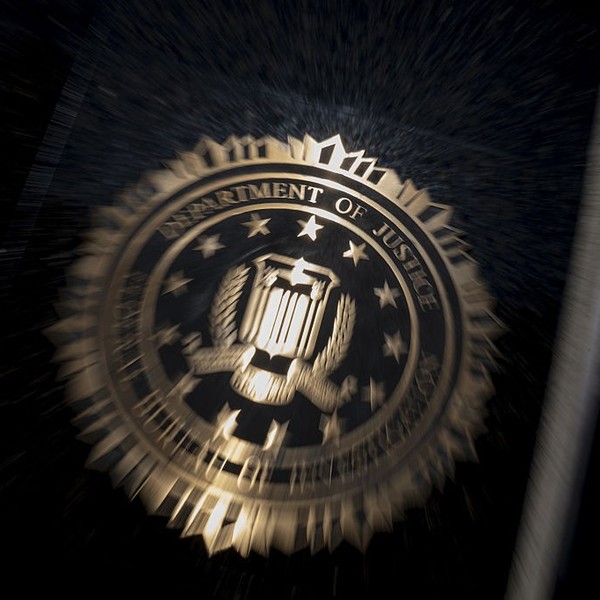As the U.S. administration is contemplating the next steps in our march toward departure from Afghanistan (what some consider a much needed disengagement from an 18 year conflict, while others see more as a Vietnam-like total surrender ceding our gains to an unrepentant Taliban) one aspect that must be considered is the cost to our indigenous Afghan partners.
During my service in Afghanistan, we lived, ate, and fought with some incredible Afghan patriots who saw the U.S. as the indispensable ally in their fight for survival. Over chicken, goat, and rice, innumerable cups of tea, too many funerals of comrades lost, frozen winters and brutally hot summers, we were locked in arms in the struggle to rid Afghanistan of the Taliban.
The fire pit was our social arena, we called it “Cave Man TV,” as there was little else to do in our down time other than become brothers in arms with our Afghan brethren. The foundation of this synergy, which was where our skills were tested to the fullest, was our constant reinforcement that America was with our Afghan allies, that we would never abandon them again (like we had after the first Afghan war). I recall after a ferocious firefight, in which our indigenous units put a real hurt on the Taliban, a U.S. military officer asked me about the fighting prowess of our allies. My response was simple and to me, quite truthful. I stated that our partners constituted “the finest fighting force in eastern Afghanistan, who we trusted with our lives each and every day.” So, I think of our indigenous partners today, who in the past believed my promises, and worry that all they see now is a tired America, sick of 18 years of war, and a president who campaigned on a total withdrawal from their country and who now negotiates from a position of rather extraordinary weakness. On a deeply personal level, and what causes me some sleepless nights, is that I wonder what our old Afghan allies think of me now.
I had similar experiences serving in northern Iraq nearly two decades ago, living alongside our Kurdish partners — who we relied on for our safety — as we geared up for the U.S. invasion of Iraq. I remember a lively and at times, heated debate with a Kurdish official, who questioned the overall U.S. commitment to overthrowing the Saddam regime, and raised an eyebrow to my promises for U.S. support ultimately to institute a more just and democratic Iraq. After yet another of my usual speeches noting pending robust action, the Kurdish official smiled and stated “We Kurds, we are always abandoned…Israel, the U.S., Iran, and even Saddam — no one has ever kept their word. What we do in the future, we will do for us, not for anyone else….not for you.”
I was taken aback, as this was not part of the intelligence training playbook. Departing from my usual script, I thanked him for his honesty, and told him “OK, you do this for you Kurds, not for us, not for any American ideal, purely for the self-interest of the Kurdish people, and that’s all, we’ll not speak of lofty U.S. ideals in the future.” He then agreed that his forces would assist, and we were brothers in arms after that truthful and very honest exchange.
Similar to our Afghan partners in South Asia, I thought of the Kurds once again last year, when the U.S. administration—against near unanimous advice of the U.S. national security community—publicly announced a military withdrawal from Syria, that included the potential for a significant reduction of U.S. military assistance to our Kurdish partners who were shedding blood in droves in the counter ISIL fight. This theme of U.S. abandonment of the Kurds was precisely what I had hoped would never happen, and I so wonder what my old Kurdish friend thinks of me now, even with his profound knowledge of realpolitik that was well-stated 16 plus years ago.
In Syria itself, a country and people I grew to love after living in the region for over a decade, the U.S. government’s previous support to the Syrian opposition—with the original and oft promised goal of removing Syrian President Bashar al Assad and his corrupt regime from power—was in reality never locked in stone. I recall public comments of more than one senior Obama administration official as the conflict dragged on, stating that in essence, our Syrian opposition partners were not to win outright. They were to fight only to achieve a negotiated settlement that would satisfy our regional partners, who feared chaos if the opposition achieved total victory. “How was this moral?” I asked my colleagues then, and I do so now as well. In the great game of the Middle East, perhaps it made some sense if you sat in the saloons of Riyadh, Doha, or Abu Dhabi. But tell that to the simple teacher from Idlib, or the shop keeper from Aleppo, who bravely took up arms and joined the opposition, under our tutelage, with the noble goal of a Syria free of Assad.
Reflecting on Syria today, my mind wanders back to a brave young Syrian I once met who believed so strongly in the American ideal that he wanted his children to be born in the U.S., as he saw America as a land of democracy and political and religious freedom, and he believed that we were serious about removing President Assad. Just like my old Afghan and Kurdish friends, I imagine my old Syrian friend none too happy when he thinks of me today.
Looking back after 26 years amidst a collection of numerous medals received for what Washington deemed significant field ‘successes’ in some nasty areas of the world, I have a nagging and at times profound sense of guilt that we have a very hard time keeping our word with our indigenous allies. In my mind, our causes were just, and I’m deeply proud of my role in every conflict arena where we supported local partners who I came to think of as brothers. The problem is that our political will simply does not last, as the timeline for success simply cannot be measured in mere months or even years.
The current Afghan peace talks have certainly fed this unsettled feeling in my gut, of the potential for broken promises and allies left behind. I also understand that our patience is not limitless, and that training wheels do have to come off with our indigenous allies. But a job unfinished is just that - unfinished. Perhaps our OSS predecessors probably could comment on my philosophical musings and conflicted personal feelings, as there were similar experiences in Greece after World War 2, when our leftist allies in the Greek resistance who helped defeat the Nazis became our bitter enemies overnight during the Cold War. At some point, we must ask ourselves, particularly for future generations of brave Americans who live and fight alongside indigenous forces, will anyone believe our promises during the next conflict, given our somewhat spotty track record? Our politicians should keep that question in mind in making decisions to withdraw from conflicts that are difficult, messy, and unfinished, and that unfortunately have shed both American— and our indigenous partners — lives.
















